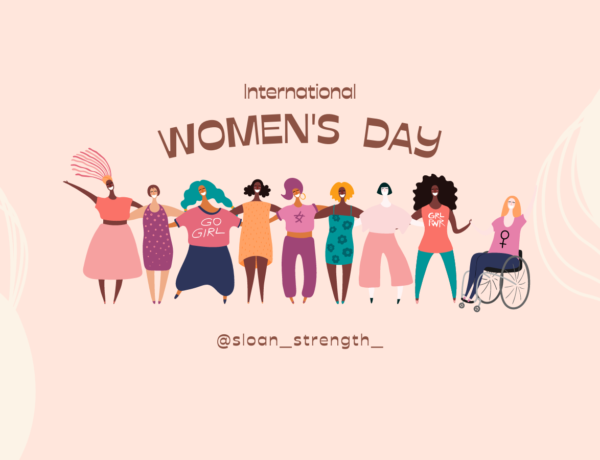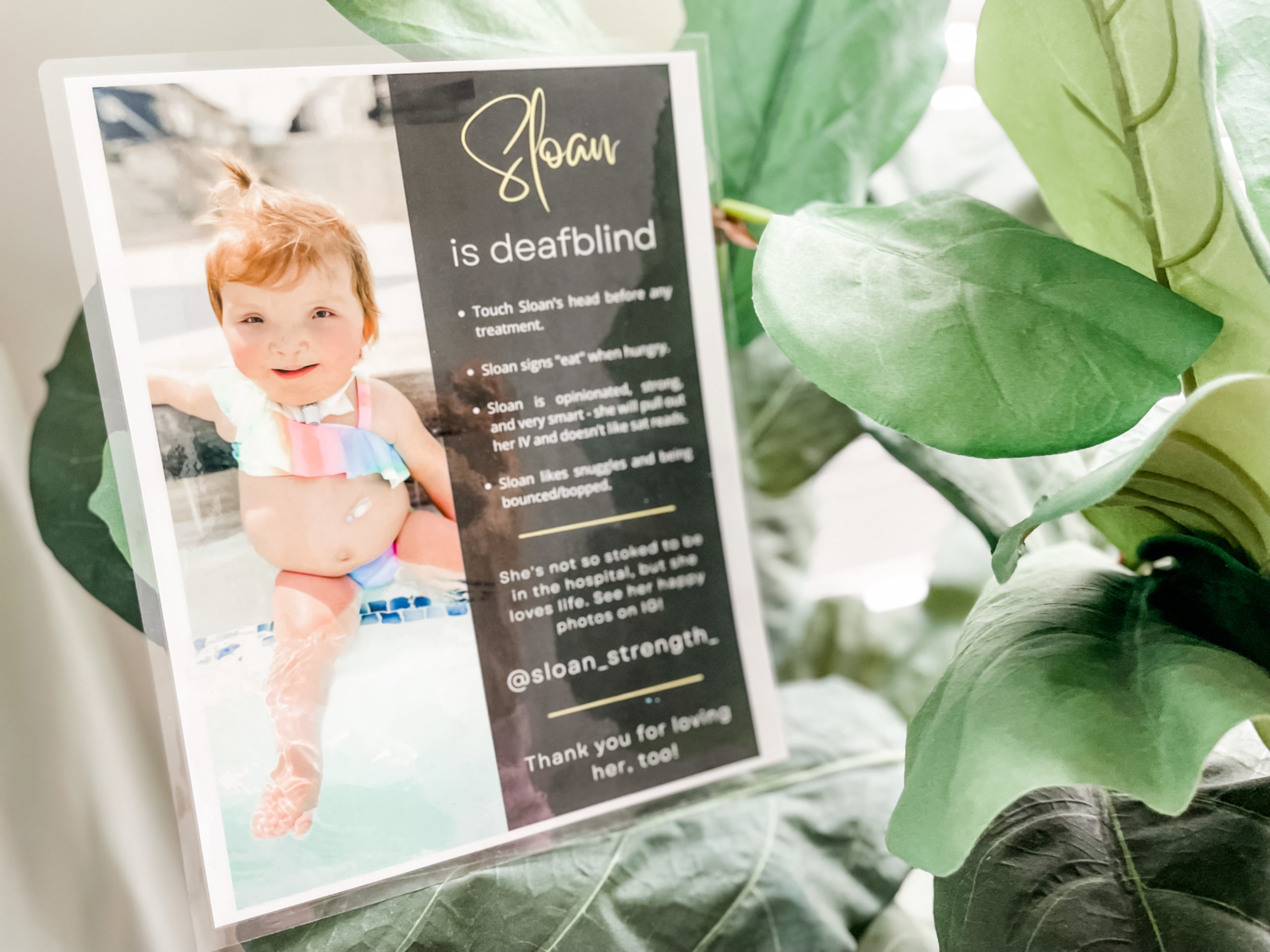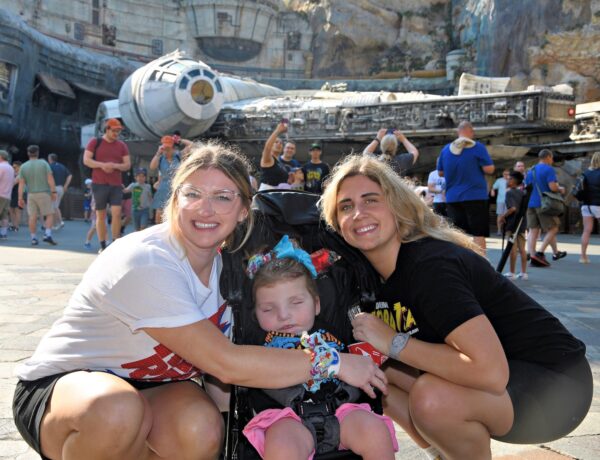After sharing videos of Sloan and our family enjoying music, I’ve received a lot of comments, questions, and DMs asking about her personal medical diagnosis.
This is something – thanks to what I’ve learned from the disabled adult community – I don’t openly share anymore. While I won’t speak to Sloan’s experience – I do think learning DeafBlind communication and how we all engage with the world is important.
So here are a few takeaways (and answers to commonly asked questions) related to the recent posts I’ve shared:
- Losing a sense doesn’t mean total darkness for the rest of your life. If you’ve seen the movie CODA, there’s a scene where the Deaf dad pulls up to school to pickup his daughter. He’s blasting rap music at top volume and, as she tries to turn the volume down out of embarrassment, he laughs and turns it back up – signing that he loves the vibes. DeafBlind people have these same experiences.
- Vibrations, taste, and other senses can heighten when someone is DeafBlind. There are so many things seeing-hearing people miss: the vibrational aspect of the world around us (cars, music, voices) the changes in air (temperature, wind, humidity, breath) and so many touch cues in our environments that we can enjoy audibly or visually. DeafBlind people enjoy these experiences and learn their environment using other, heightened senses.
- Another common thing that many people with disabilities – including the DeafBlind – do is “self-stim” which is a way to self-regulate in one’s environment or just entertain one’s self for a moment. You can learn the basics about self-stimming here.
- DeafBlindness is a spectrum. The one thing I WILL openly share about Sloan is that she is profoundly DeafBlind – no vision, no hearing. And it’s fact in our life now – not sad, not bad, not weird. Tbh it’s actually kinda cool when you think about all the wild shit she does without sight or hearing. She’s done more by four than I did by her age – and she’s done it with great tenacity, joy, and a desire to experience and feel more every day.
- Not all Deaf people need, want, or qualify for cochlear implants. There’s a multitude of reasons for this: and in order to respect people’s medical histories and honor Deaf culture, all of these reasons should be respected.
- When you are speaking with a parent of a disabled child or a talking to someone with a disability, more often than not rudimentary questions like “Have you considered X thing?” are invasive and kinda silly to ask. Unless you’re an expert in the field of their diagnosis offering an opinion on a rare treatment of sorts, I can almost guarantee that person (or their caregiver) has thought of everything in the book of treatment. Just step back and remember: this is the entire life of the person you’re talking to. They live with the disability day in and day out – not you. So there’s a pretty high chance through all of their doctor appointments, expert consultations, therapies, etc they’ve already considered what you’re suggesting and not only does it not work for them – but it could bring up painful feelings around methods of treatment that don’t help everyone.
- The expert on someone’s full diagnosis is the person diagnosed. Their caregiver + caretaker often comes in at a close second. But it’s often not a friend or colleague – and definitely not an internet follower or stranger.
As I share some of the points above, remember they come from a place of great intention and aiming to drive educational awareness about DeafBlindness and tropey stuff that happens to Sloan and I both online and off almost daily. I know people mean well when they recommend treatments, ask questions about Sloan’s diagnosis, and engage with curiosity – but just like I wouldn’t ask someone about how their colostomy bag works or how much vision their glasses give them: we should extend the same kind of respect to those with disabilities. Including my daughter, Sloan.
We’ll always continue to share our experiences and live in a way that we hope everyone understands life being a DeafBlind toddler and a grieving seeing-hearing adult binge-watching Vanderpump Rules isn’t the worst thing ever – because it’s actually not. But it also means we don’t share all of our personal info online, including full medical and disability diagnoses, and we’ll continue to keep it that way to protect our privacy.
<3 – Kari



